College of Science, Engineering & Technology
Building hope for a greener future
Prof Alex Kuvarega from the Institute for Nanotechnology and Water Sustainability (iNanoWS) at the College of Science, Engineering and Technology (CSET) recently delivered his inaugural lecture titled "Building hope for a greener future: Celebrating progress in Advanced Oxidation Processes".
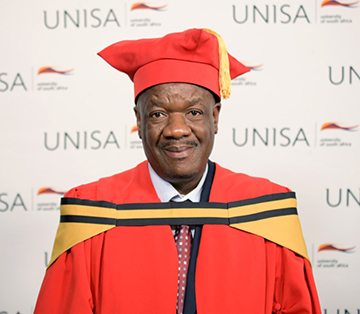
Prof Alex Kuvarega
One in nine people in South Africa lacks access to safe drinking water. This makes South Africa a water-scarce nation. "We can relate this occurrence to what occurred in 2018 in the Western Cape Province, South Africa, where we had people queuing for water and spending a lot of time trying to get this precious resource," said Kuvarega. "It is, therefore, vital that we come up with technologies for water and waste water treatment to contribute to the improved access to clean and fresh water across the globe," he added.
To address the national water scarcity and poor water quality crisis, Kuvarega's research uses advanced oxidation processes (AOPs) combined with solar energy to aid the breaking down of organic contaminants present in wastewater. According to Kuvarega, AOPs can be classified into homogenous and heterogeneous processes. In both methods, reactive oxygen species are generated, which can be hydroxyl or sulphate radicals. The reactive oxygen species can be generated from chemical reactions that are enhanced by energy, solar or artificial energy. The radicals generated are responsible for breaking down or inactivating a wide range of organic pollutants and pathogens in wastewater. To get enhanced pollutant removal in contaminated water, Kuvarega's research also looks into combining advanced oxidation processes with membrane filtration technology, a project his master's students are driving. "We also look at how we can use renewable energy in the integrated system of advanced oxidation and membrane filtration technology, which will rely on solar energy to drive the whole treatment process," mentioned Kuvarega. "The solar energy activates the photocatalysts and reactive oxygen species that can be added to the reactor system. The reactor system can accommodate large volumes of water depending on the reactor size," he added.
"Kuvarega's research addresses the most pressing issues of the day: provision of safe, affordable water and ensuring public health and wellbeing," said Prof Vladimir Tarabara from Michigan State University, who responded to the lecture. "Kuvarega has made significant contributions to advanced oxidation processes, particularly at the interface of material science and process design. Combining advanced oxidation processes and separation technologies as Kuvarega's research does, provides synergistic gains in water treatment performance by reducing membrane fouling, producing reactive species generated by AOPs in the most effective way to degrade contaminants," emphasised Tarabara. "Kuvarega's many contributions through his profession also involve training the next generation of engineers and graduate students. In 2021, I had the pleasure of serving as an examiner for one of his students, and I was very impressed by the quality of work and research presentation," he highlighted.
Academic and research profile
Kuvarega joined Unisa in July 2015 as a Senior Lecturer at the former Nanotechnology and Water Sustainability (NanoWS) Research Unit at Unisa CSET. In January 2021, he was promoted to the Associate Professor position at the Institute for Nanotechnology and Water Sustainability (iNanoWS) at Unisa CSET. A year later, he became a full professor at the same institute. Since joining the university, he has supervised, to completion, seven master's and three doctoral degree students. He is currently involved in the supervision of three master's and 12 doctoral students who are all working on various AOPs-related projects for water treatment.
Kuvarega has presented his research work at several local and international conferences, notably at the Materials Chemistry Conference held in Manchester, United Kingdom, in 2011, and the 10th European Meeting Solar Chemistry and Photocatalysis: Environmental Applications (SPEA10) held in Almería, Spain, in 2018. With a Google Scholar h-index of 30, his research work proves to be receiving recognition from several researchers working in the same research domain. He is also an NRF C2-rated researcher, a registered Professional Chemist (PrChemSA) and a Professional Natural Scientist (Pr.Sci.Nat). As part of his academic citizenship in the international academic community, Kuvarega is a reviewer for several international journal publishers such as Elsevier, Springer, and Wiley. Additionally, he is the current guest editor of a special issue on Potential Applications of Nanomaterials-Based Adsorbents in the Removal of Pollutants in Wastewater published in Applied Sciences (MDPI). He currently holds several research grants to the tune of about R2.7 million.
* By Dr Nozipho N Gumbi, Acting Communication and Marketing Specialist, College of Science, Engineering and Technology
Publish date: 2023-04-18 00:00:00.0

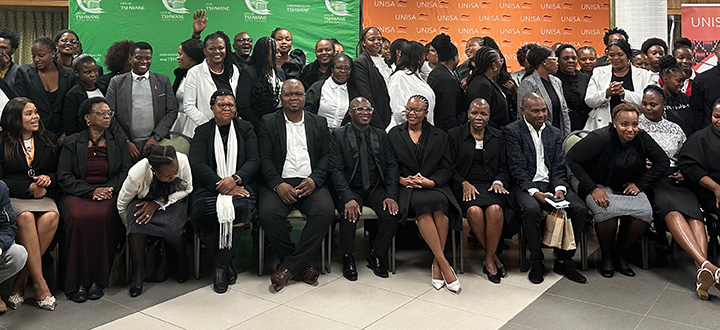 Unisa academics join hands to celebrate World Social Work Day
Unisa academics join hands to celebrate World Social Work Day
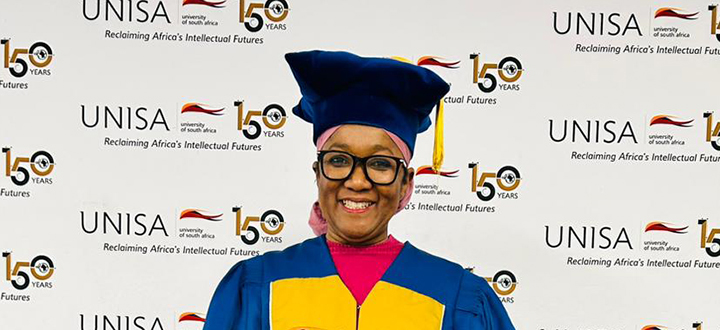 Unisa community engagement initiative targets school underperformance
Unisa community engagement initiative targets school underperformance
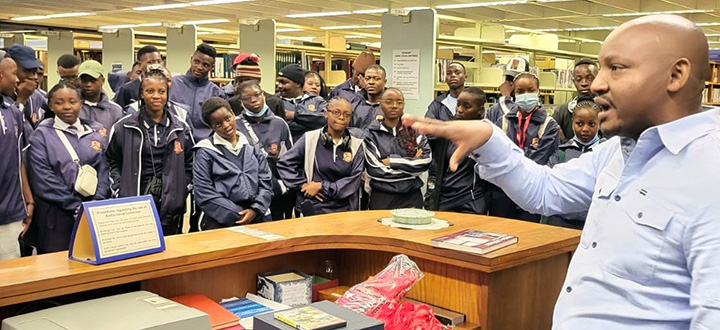 Library tour introduces learners to the wonderful world of Unisa
Library tour introduces learners to the wonderful world of Unisa
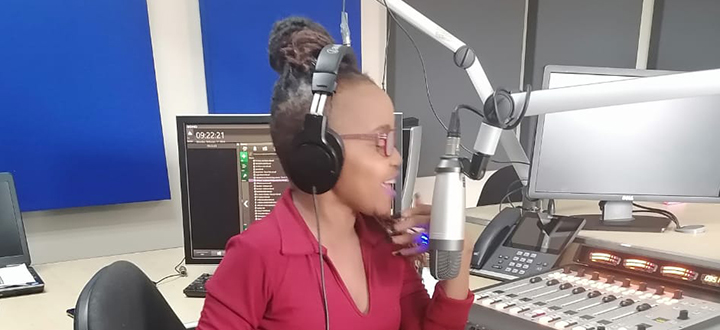 Unisa Radio volunteer wins prestigious community journalism award
Unisa Radio volunteer wins prestigious community journalism award
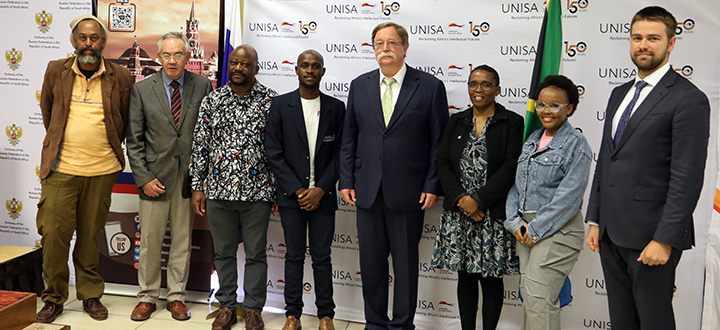 Unisa's student leadership engage with Russian ambassador
Unisa's student leadership engage with Russian ambassador